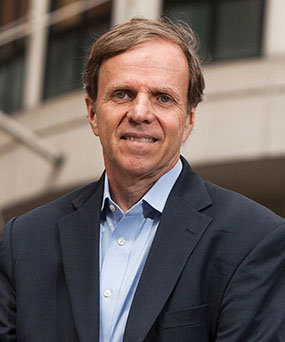
A Long Term Fix for Our Short Term Focus on Corporate Culture and Profits
BlogIn a society and culture that emphasizes the new and the now what does it mean to manage for the long term? If we want what we want when we want it, businesses that take a multi-year perspective may be misaligned with modern expectations by shareholders to maximize profits, almost immediately.
 Today’s businesses have morphed into revenue generators designed to squeeze every ounce of productivity and profit from its people and operations. Many corporate leaders see their role as the facilitator of shareholder enrichment. Coupled with a culture of instant gratification, it is not that shocking to see the reinforcement from the field as to what it means to be a successful enterprise.
Today’s businesses have morphed into revenue generators designed to squeeze every ounce of productivity and profit from its people and operations. Many corporate leaders see their role as the facilitator of shareholder enrichment. Coupled with a culture of instant gratification, it is not that shocking to see the reinforcement from the field as to what it means to be a successful enterprise.
However, a new article in Harvard Business Review by authors Joseph Bower and Lynn Paine of Harvard Business School argues that the entire basis for the popularity of shareholder primacy is deeply flawed and that its growing reliance excludes real opportunities for sustained growth and imperils the broader economy.

Retail Bank Incentive Schemes in Australia
Blog Dennis Gentilin is the author of “The Origins of Ethical Failures” (Routledge, 2016) and the Founding Director of Human Systems Advisory.
Dennis Gentilin is the author of “The Origins of Ethical Failures” (Routledge, 2016) and the Founding Director of Human Systems Advisory.
Last week, Mr Stephen Sedgwick AO released the findings from his review into remuneration arrangements for retail banking staff in Australia (the final report can be downloaded here). The review is part of a broader program of work being undertaken by the Australian Bankers Association that is aiming to address the culture and conduct issues within the banking sector.
With this objective in mind, the review represents a significant (albeit small) step in the right direction. Although some may question whether Mr Sedgwick went far enough, he has squarely placed the ball in the banks’ court and left them under no illusions that change is needed.

Featured Ethics [and Transparency] Scholar for May: Alison Taylor
Blog Interview with Alison Taylor, Director of BSR’s sustainability management practice
Interview with Alison Taylor, Director of BSR’s sustainability management practice
What are your main areas of research/work?
I’ve spent most of my career working in consulting roles, helping large companies navigate integrity challenges. These are becoming ever more complex, are not confined to a single department, and require difficult judgment calls at the critical intersection of risk, responsibility, and reputation.
Currently, I work for BSR, which is a global nonprofit organization that works with its network of more than 250 member companies and other partners to build a just and sustainable world. There, I saw the sustainability field attempting to tackle some core business ethics and integrity challenges, though from a very different angle than the approach taken by risk and compliance teams. Both perspectives are essential, but too many discussions and purported solutions remain separate, in distinct silos.
I see huge potential in a more integrated approach to ethics that incorporates ideas from both compliance and sustainability. The concept of a “culture of compliance” is strangely empty. It may sound obvious to say that corporate values statements must amount to more than words on a website, but the task of giving these concepts substance can be neglected. We still hesitate to question the dominant idea that all decisions to maximize profit are ethically neutral. And we still argue that a private sector organization needs a ‘business case’ for integrity, while expecting that the individuals within that organization should behave ethically. I argue that ideas taken from corporate responsibility and sustainability can provide both the direction and the decision-making frameworks we need to use when tackling today’s challenges in business ethics.

Building Cultures of Trust at Laureate Education
Blog Ethical Systems seeks to highlight companies with a strong commitment to ethical, speak up cultures and trust. One of these companies is Laureate Education, Inc., who created a series of internal videos for their 70,000 employees about trust, blame and ethics. We present them below with an introduction by Laureate's Chief Ethics & Compliance Officer, Mark Snyderman.
Ethical Systems seeks to highlight companies with a strong commitment to ethical, speak up cultures and trust. One of these companies is Laureate Education, Inc., who created a series of internal videos for their 70,000 employees about trust, blame and ethics. We present them below with an introduction by Laureate's Chief Ethics & Compliance Officer, Mark Snyderman.
Laureate Education, Inc. is the largest global network of degree-granting higher education institutions, with more than one million students enrolled across 70 institutions in 25 countries at campuses and online. Laureate offers high-quality, undergraduate, graduate and specialized degree programs in a wide range of academic disciplines that provide attractive employment prospects. Laureate believes that when our students succeed, countries prosper and societies benefit. This belief is expressed through the company's philosophy of being 'Here for Good' and is represented by its status as a Certified B Corporation™ and conversion in 2015 to a U.S. public benefit corporation, a new class of corporation committed to creating a positive impact on society.

Our new ‘Ask an Ethics Expert’ Feature
Blog Expanding on our mission to curate and distil ethics research for the business community, Ethical Systems is proud to launch a new initiative soliciting questions to submit to one of our esteemed collaborators.
Expanding on our mission to curate and distil ethics research for the business community, Ethical Systems is proud to launch a new initiative soliciting questions to submit to one of our esteemed collaborators.
Our "Ask an Ethics Expert" project allows you to learn more about business ethics, culture, decision making and more. Submit your questions online and see your answers in our May newsletter and on our Ask an Ethics Expert page online.
Is Your Legal Department Creating Organizational Risk?
Blog
At the 2017 Global Ethics Summit, put on by the Ethisphere Institute, Caroline Rees of SHIFT spoke on a panel about business and human rights.
When asked about differences in stakeholder management approaches between European and U.S. businesses, and why U.S. companies are not as far along as their European counterparts, she highlighted that U.S. lawyers have a more dominant role.
When business leaders want to audit their supply chain, for example, lawyers often warn against such initiatives in the absence of a regulatory mandate. But, as Rees discussed, the existence of human rights risk in your supply chain is not a secret -- it’s just a question of when and how it will be exposed.

Sharing: The Five Levels of Building an Ethical Culture
Blog
Featured Ethics [and Human Rights] Scholar for April: Mike Posner
Blog Interview with Mike Posner, Jerome Kohlberg Professor of Ethics and Finance and Director for the Center of Business and Human Rights at NYU Stern School of Business
Interview with Mike Posner, Jerome Kohlberg Professor of Ethics and Finance and Director for the Center of Business and Human Rights at NYU Stern School of Business
What are your main areas of research/work?
When we launched the Center in 2013, we sought to pioneer new ways of investigating business practices at the industry level. Our methodology prioritizes interview-based research with business leaders and other stakeholders, combined with documentary evidence, policy and data analysis, and visualization.
How does strengthening human rights help reduce ethical misconduct in companies?
To date, most approaches to address human rights or sustainability in business have focused on what happens within the four walls of the firm. They focus on the activities of individual managers to improve company practices or corporate financial contributions to improve the environment, women’s empowerment, or public health. We are very focused on how large global companies make money, their business models for doing so, and the human rights risks in their industry that accompany that model.

Bank Culture: Can regulators have an impact?
Blog A March 14 New York Times Dealbook article by David Zaring of the Wharton School looks at bank culture from a regulatory perspective and questions why NY FED regulators are taking on the grand task of attempting to make culture and ethics an important part of bank supervision- especially when “creating and regulating culture by regulatory fiat is so difficult.”
A March 14 New York Times Dealbook article by David Zaring of the Wharton School looks at bank culture from a regulatory perspective and questions why NY FED regulators are taking on the grand task of attempting to make culture and ethics an important part of bank supervision- especially when “creating and regulating culture by regulatory fiat is so difficult.”
Ethical Systems has made fortifying ethical corporate culture a main concentration of our efforts, as there is no better determinant to predicting misconduct. An ethical systems approach to business ethics considers the interplay between corporate culture with considerations for how to motivate individual to be more ethical (nudging),and the regulatory (guiding policies that impact behavior and outcomes).
When examining company culture, leaders should consider whether it is one in which company values are infused into all aspects of the operation, where managers lead by example and teams are encouraged to speak up about ethics and other issues? Or, if it is a culture in which checking the compliance boxes off a list is seen as most important and certain behavior is tolerated by high-performers but not allowed for others?

Featured Ethics [and Leadership] Scholar for March: Ron Carucci
Blog Interview with Ron Carucci, author, leadership consultant and cofounder / managing partner at Navalent
Interview with Ron Carucci, author, leadership consultant and cofounder / managing partner at Navalent
What are your main areas of research/work?
My colleagues and I at Navalent spend our days working with organizations pursuing dramatic change. That could be changes in strategy, re designs of organizations, or strengthening of leadership capability. Our writing and research focuses on those same areas – we see our intellectual capital as the opportunity to learn on behalf of the clients we serve.
How does strengthening leadership help reduce ethical misconduct in companies?
If you think about the nature of many ethical misconduct, they can often emanate from previously undiscovered character flaws that get exposed when leaders are pressured in broader roles. Preparing leaders early in their careers to assume increasingly bigger jobs can help reduce the likelihood that the challenges of power and resources, political rivalries, or intensified performance pressures won’t drive leaders to make short-sighted, unethical choices.
